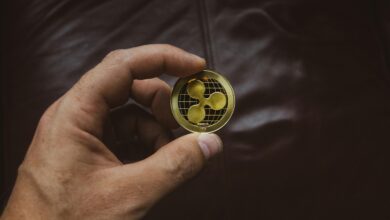WhiteBIT Nova: Your Guide to the Visa Crypto Card

What is WhiteBIT Nova?
WhiteBIT Nova is a Visa debit card that lets you spend crypto on goods and services. Whether you’re shopping for groceries, paying for transportation, or covering entertainment expenses, this card simplifies spending crypto in everyday scenarios.
Here are a few categories where you can use the card:
- Transportation
- Groceries
- Entertainment
- Medicine
- Subscriptions
- Pet care
- Auto-related expenses
This card is ideal for those who earn salaries in crypto, run businesses accepting crypto, or benefit from DeFi strategies. It saves you from the hassle of multiple conversions and transfers.
Note that the card is available only within the European Union and EEA countries. No card-to-card or bank account transfers are allowed-just payments for goods and services.
About WhiteBIT
Founded in 2018, WhiteBIT is a European centralized exchange (CEX) with over 5.5 million users. It has processed trillions of dollars in transaction volume.
Key achievements include:
- Becoming the first crypto exchange to obtain CCSS Level 2 certification, indicating a strong security focus.
- Offering diverse services, including trading, crypto loans, wealth management, and its native token, WBT.
WhiteBIT Nova cardholders enjoy additional benefits like cashback in Bitcoin or WBT for purchases.
Features of the WhiteBIT Nova Card
WhiteBIT Nova provides several unique features that stand out among crypto cards.
Card Types
- Physical Card: Costs €10 and allows ATM withdrawals. The daily ATM withdrawal limit is €1,000.
- Digital Card: Perfect for those who prefer mobile payments.
Zero Fees
There are no hidden fees associated with using the card.
- No top-up fees
- No monthly charges
- No inactivity fees
- No opening or closing fees
However, some ATM fees apply:
|
Activity |
Fee |
|
Balance Inquiry |
€0.50 |
|
Cash Withdrawal (EEA areas) |
€2.00 |
|
Cash Withdrawal (non-EEA areas) |
€2.00 + 2% of the amount |
Mobile Compatibility
The WhiteBIT Nova card works seamlessly with Apple Pay and Google Pay. Add it to your digital wallet to make contactless payments instantly.
A dedicated mobile app (available for iOS and Android) helps users monitor balances, transactions, and more.
Supported Cryptocurrencies
The card supports a variety of cryptocurrencies, including:
- Bitcoin (BTC)
- Ethereum (ETH)
- USDC
- Solana (SOL)
- Avalanche (AVAX)
- WhiteBIT Token (WBT)
Users can prioritize which cryptocurrency gets used first for payments. For example, you can spend your WBT balance before tapping into Bitcoin.
Crypto Cashback
Cashback rates vary by category:
|
Category |
Cashback Rate |
|
Subscriptions |
10% |
|
Taxi Services |
5% |
|
Pet Care |
5% |
|
Gaming |
2% |
|
Entertainment |
2% |
|
Groceries |
1% |
|
Food and Cafes |
1% |
You can choose up to three cashback categories at a time and adjust them daily. Cashback earnings are capped at €25 per month.
Security Features
WhiteBIT prioritizes security, with 96% of assets stored offline in cold wallets. Key safeguards include:
- Anti-Money Laundering (AML) Compliance: Ensures adherence to global standards.
- Web Application Firewall (WAF): Protects against cyberattacks.
- 24/7 Customer Support: Assistance is always available for issues or concerns.
How to Get the WhiteBIT Nova Card
Follow these steps to get started:
- Register: Sign up for a WhiteBIT account via the website or mobile app.
- Verify Your Identity: Complete the Know-Your-Customer (KYC) process with a government-issued ID.
- Select Your Card: Choose between a physical or digital card.
- Provide Address: If opting for a physical card, enter your delivery address.
- Set a PIN: Secure your card by creating a PIN.
- Make Payment: Complete the payment process for your card.
Once your application is approved, you’ll receive a confirmation notification.
Risks of Using Crypto Cards
While convenient, crypto cards come with some risks:
- Limited Acceptance: Not all merchants accept crypto cards.
- Security Concerns: Breaches or wallet compromises can lead to losses.
- Regulatory Challenges: Service disruptions may occur due to legal or compliance issues.
The WhiteBIT Nova Visa card offers a practical way to spend cryptocurrency. From cashback rewards to security measures, it merges the digital and physical worlds seamlessly. With mobile-friendly features and support for multiple cryptocurrencies, it’s a great tool for anyone looking to integrate crypto into daily life. However, it’s essential to stay aware of potential risks and limitations.
https://www.coinbackyard.com/wp-content/uploads/2025/01/1200.webp
2025-01-08 11:00:00




